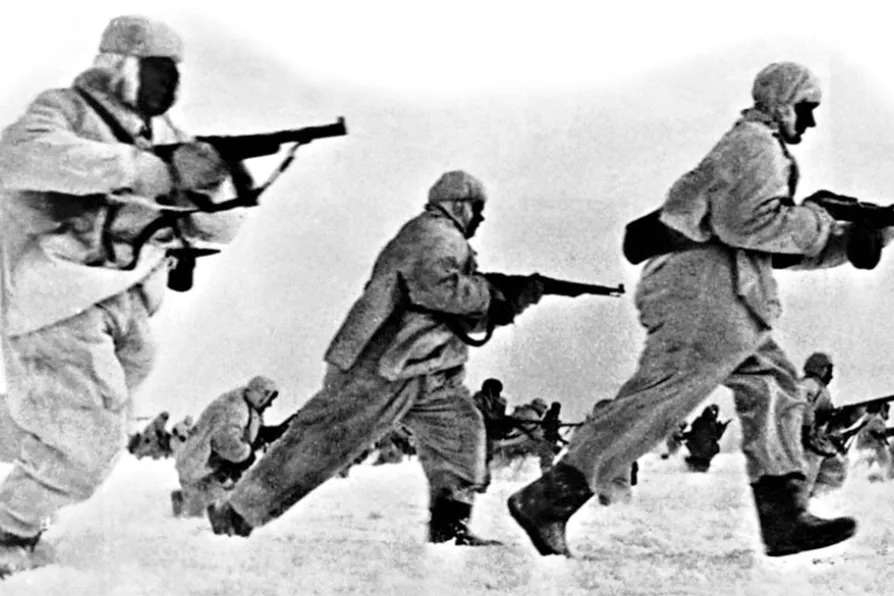This weekend, the NEU holds a special conference to debate changing its approach to organising teaching assistants, which a 2017 TUC agreement forbids. General secretary DANIEL KEBEDE outlines the choices before delegates

 Soviet soldiers advance through the snow
Soviet soldiers advance through the snow
ON THIS day 80 years ago, over three-and-a-half million German and other Axis troops attacked the Soviet Union along a 1,800-mile front.
Some 148 divisions, representing 80 per cent of the German army, were supported by Romanian, Italian, Hungarian, Slovak and Finnish forces.
For the Nazis, in particular, this was the highest point yet of their project for fascist expansion and it was underpinned by a racist ideology toward the Jews, but also toward the Slavs living in the Soviet territories.

The obfuscation of Nazism’s capitalist roots has seen imperialism redeploy fascism again and again — from the killing fields of Guatemala to the war in Ukraine, writes PAWEL WARGAN

The pivotal role of the Red Army and sacrifices of the Russian people in the defeat of Nazi Germany must never be forgotten, writes DR DYLAN MURPHY

KEVIN DONNELLY reports from Monte Faudo and its annual remembrance of the region’s WWII partisan anti-fascist battles










